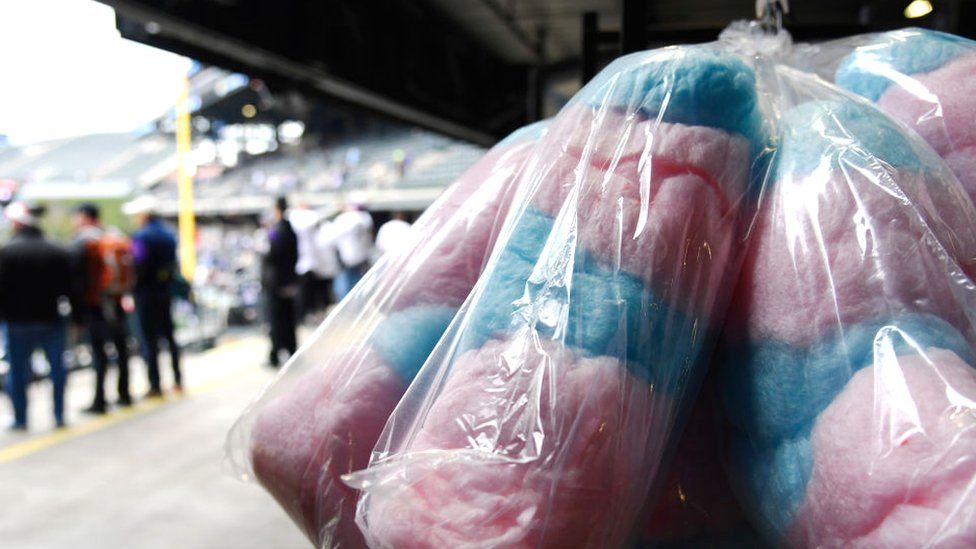Georgia woman jailed as 'cops mistake candy floss for meth'
- Published

A Georgia woman spent three months in jail after her bag of candy floss was mistaken for methamphetamine owing to a defective drug test, says a lawsuit.
Dasha Fincher, 41, is suing Monroe County, the police and a drug test company over the alleged mix-up during a traffic stop on New Year's Eve 2016.
The 41-year-old was held in custody because she could not afford her $1m (£780,000) bond.
The legal action argues the county violated her civil rights.
She was arrested and charged with meth trafficking and possession of meth with intent to distribute, according to the lawsuit.
The court documents say she was improperly detained from 31 December 2016 until 4 April, when her charges of drug possession and trafficking were dropped.
A state crime laboratory had already tested the bag of light blue candy floss - known as cotton candy in the US - and determined on 22 March it contained no drugs.
Ms Fincher says she missed important life events due to the unlawful jailing, including the birth of her twin grandsons and the chance to care for her daughter after a miscarriage.
In addition, the arrest remains on her record despite her innocence, according to the lawsuit.
Ms Fincher is seeking damages for negligence and wrongful actions, as determined by a jury, from Monroe County, the two officers who arrested her and the test manufacturer Sirchie.
County officials and Sirchie did not immediately respond to a request for comment.
A 2016 ProPublica investigation found that cheap roadside drug tests "routinely produce false positives" that result in tens of thousands of Americans being wrongfully jailed.
According to a list compiled by the Washington Post, roadside tests have labelled cookies, mints, deodorant, and tea, among other harmless materials, as drugs.
- Published26 November 2018
- Published20 September 2018
- Published1 April 2013